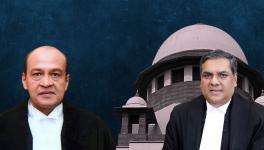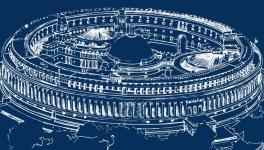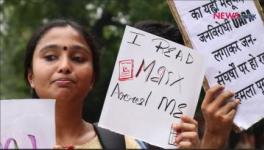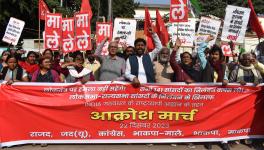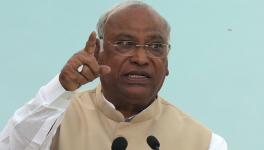Justice Gogoi in Rajya Sabha: Beware, ‘Anti-nationals’?
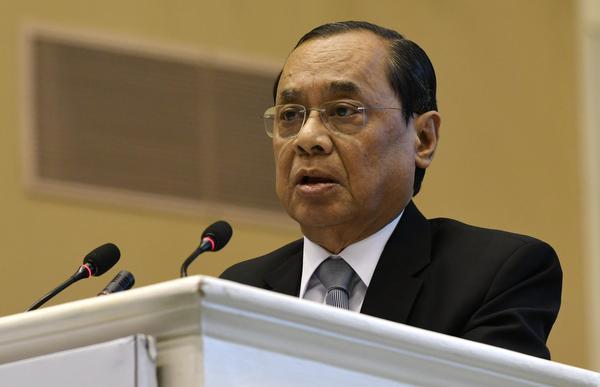
Image Courtesy: The Hindu
At the very outset, I feel compelled to state that I am a first-generation advocate, practising with little support from the ‘system’. I cannot boast of the kind of resources that give the legal profession its reputation of being an elite pursuit. We legal practitioners understand that the system reserves many of its ‘favours’ for those who have developed an acquaintance with the establishment over generations. This fact is rampant when it comes to practice.
However, I—and many others, who wear shoes of a similar size—still trust the system and expect our judges to take decisions based on the rule of law, irrespective of what the executive may want and how their decisions affect them. The edifice of the rule of law will start to disintegrate if the judiciary starts working in coordination with the executive or legislature, or for that matter, if judges start acting like statesmen when they write judgements and start finding occasion to applaud the executive on public fora.
Recently, a former Chief Justice of India was nominated a Member of the Upper House of Parliament by the President of India. How many judgements were delivered by the benches of which he was a member, which had serious political ramifications, is in the public domain. Interestingly, all these decisions went in favour of the executive. This is a significant matter, as the former Chief Justice of India, Ranjan Gogoi, has himself expressed a “strong conviction” that the legislature and the judiciary must “work together for nation-building”.
The legislature of today is a place where logic and debate have no place left. Serious legislations are pushed through by a number game and passed on the basis of the instructions of a few in the executive. This is happening without realising the importance of discourse and the possible ramifications of these legislations. Two good cases to make this point would be the recent matter of electoral bonds and the Citizenship Amendment Act, 2019, but there are others, too.
In an interview he gave on 1 January 2019, when Justice Gogoi was the Chief Justice, Prime Minister Narendra Modi explained how the Ayodhya dispute was a serious issue and that after the legal process in the Supreme Court was over, he would see how it can be resolved [by bringing a law on it]. This implied that if there was a judgement against the construction of a temple in Ayodhya [a matter to which Justice Gogoi was a party] the legislature would have to bring in a law on it. That occasion never arose.
Obviously, the Ayodhya ruling is a unanimous judgement of five judges, but Gogoi was a part of the bench that delivered it. Their ruling shall remain a “questionable” one for all time to come. India will remember that on the related issue of the Babri Masjid, the Supreme Court had earlier stated that the act of demolishing it is a ‘national shame’.
While awarding compensation to Bilkis Bano, a victim of the 2002 Gujarat riots, Justice Gogoi, again when he was Chief Justice and on the bench delivering this verdict, made an oral observation to the State of Gujarat. He had said that it should “feel lucky” as the court was not placing any [adverse] observation against the government in its order. It is, however, the duty of a constitutional court to make the appropriate observations about inappropriate functioning of the state and its administration, rather than obliging them.
The former Chief Justice has stated that the definition of quid pro quo does not fit with his own nomination to the Rajya Sabha because, in his case, it is an invitation from the President of India to serve the nation. One can not understand the distinction he his trying to make. Could the President have nominated and appointed Gogoi to the post without the Cabinet advising him to do so? No. Article 74 of the Constitution states that there shall be a Council of Ministers headed by the Prime Minister that will aid and advise the President, who “shall”, in the exercise of his functions, act in accordance with such advice.
Even in appointments and transfers of judges, the President is not free from the executive. Now, many judicial appointments have remained pending for unreasonably long periods, while others have moved incredibly fast. The reason is that every action of the President is dependent upon the advice of the Council of Ministers. So, even if the collegium of the Supreme Court has taken substantive decisions on appointments, the Cabinet still takes a call on these very appointments.
Look at the matter another way: had anybody else been sent to the Rajya Sabha instead of former Chief Justice Gogoi, would a different process have been followed in his or her appointment—as Gogoi has suggested? Or, for instance, the chairpersons of all statutory commissions are appointed by the President of India on the recommendation of the Cabinet. Or, tomorrow, if the government wants to appoint the head of such a commission as minister, will it still not be the office of the President of India which will call him to serve the country?
How these instance are any different from a nomination of a member to the Rajya Sabha is not clear. The person holding these positions may keep changing but the process of appointment to the position does not change.
At present, perception-building has become very important to those who are in power. There are only a few who are able to effectively put across a critique of the government’s way of functioning. Justice Gogoi himself appears to have indicated that he will start targeting the critics of the government from the floor of Rajya Sabha and through the media. This is possibly something those lawyers who have taken issue with the government’s actions, have clearly noted.
At this point of time, the media, law-enforcement agencies, commissions like the NHRC, organisations meant for minorities, women’s bodies, even environment-protection bodies, are working in complete coordination with the executive—all in the name of “nation-building”. There are a few eminent judges, lawyers and members of civil society who have been critical of the government. The government’s agenda is to project them as ‘anti-nationals’ or at least discredit them. For that purpose there cannot perhaps be a better idea than appoint a former justice to Rajya Sabha, who will attempt all of the above from the floor of Parliament.
The author is an advocate-on-record at the Supreme Court of India. The views are personal.
Get the latest reports & analysis with people's perspective on Protests, movements & deep analytical videos, discussions of the current affairs in your Telegram app. Subscribe to NewsClick's Telegram channel & get Real-Time updates on stories, as they get published on our website.









